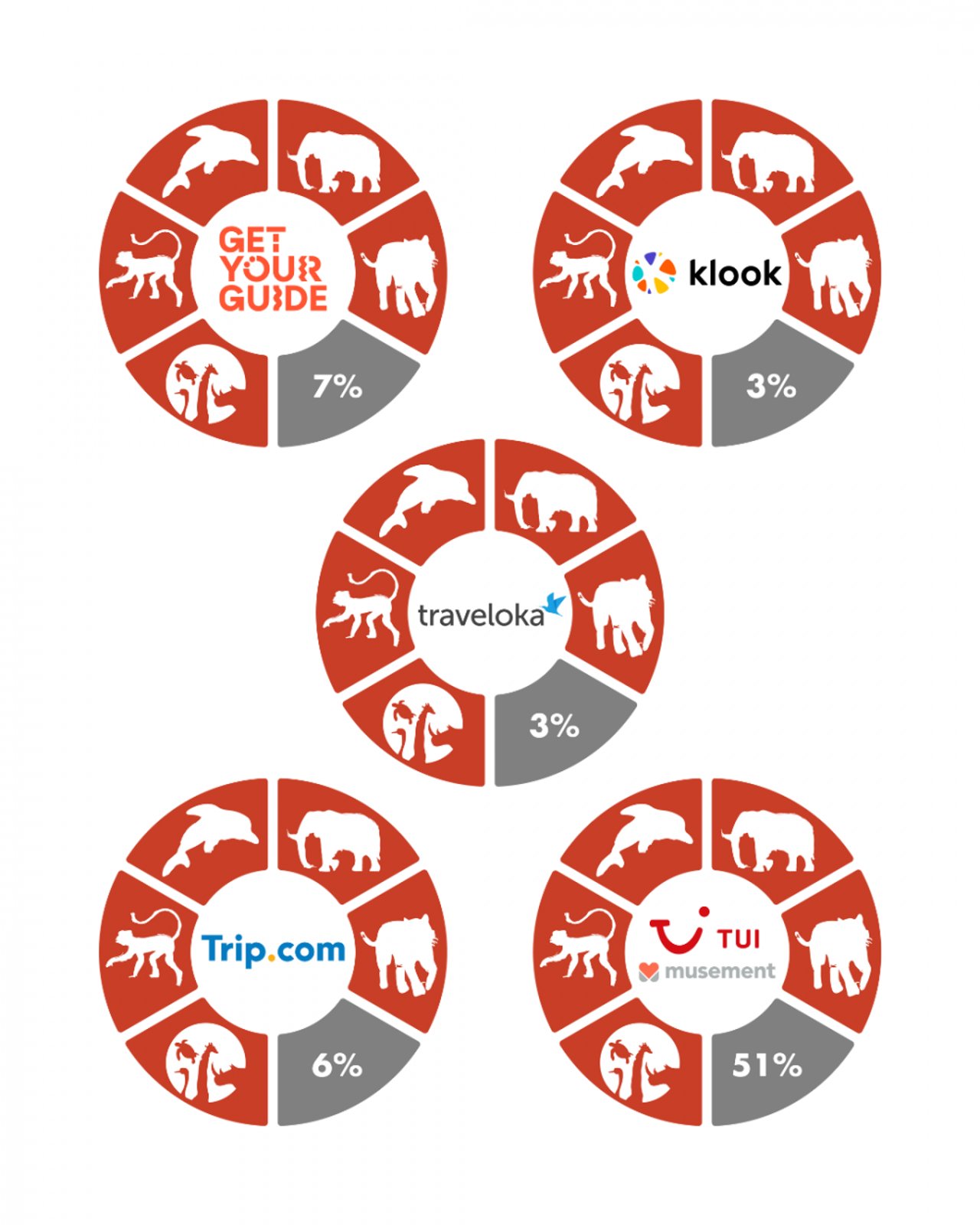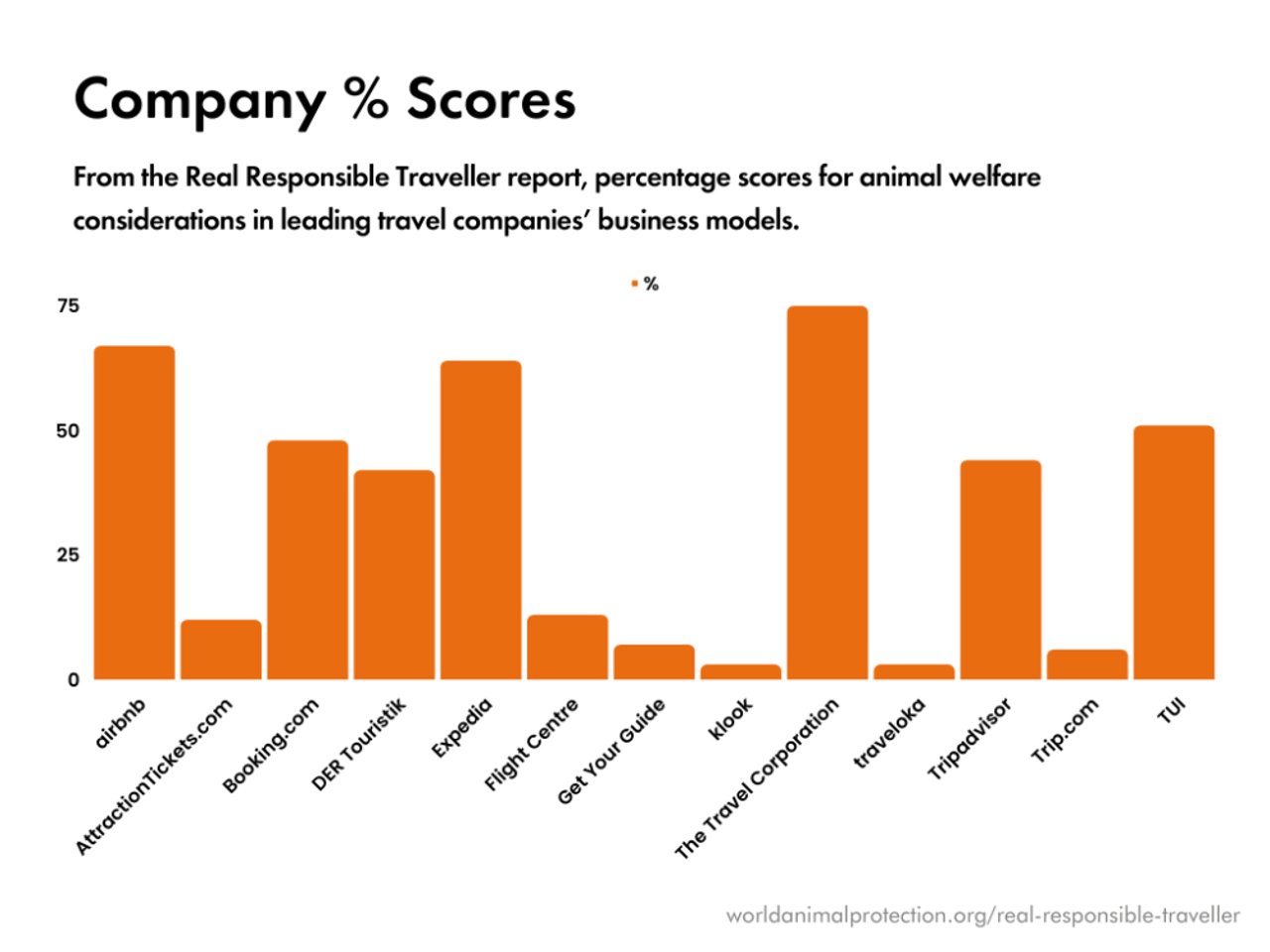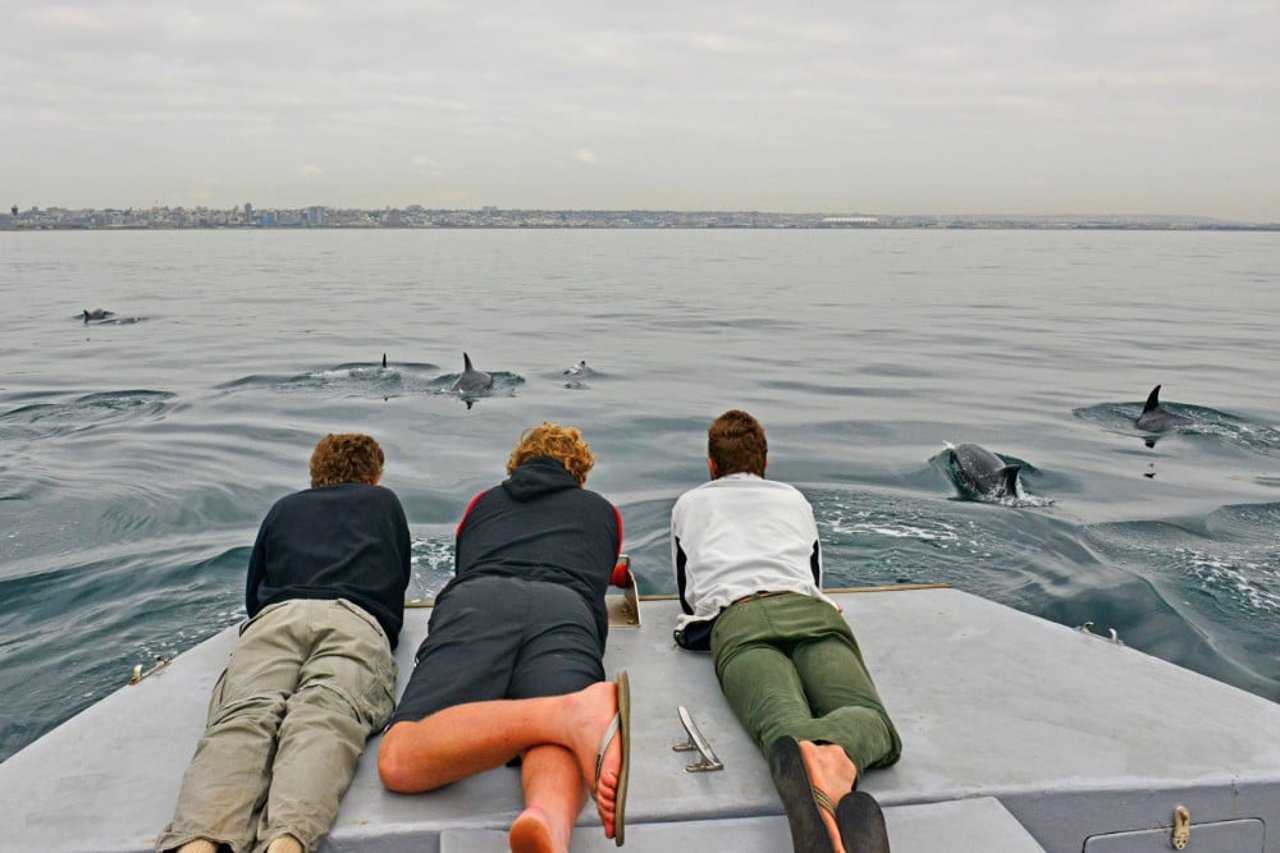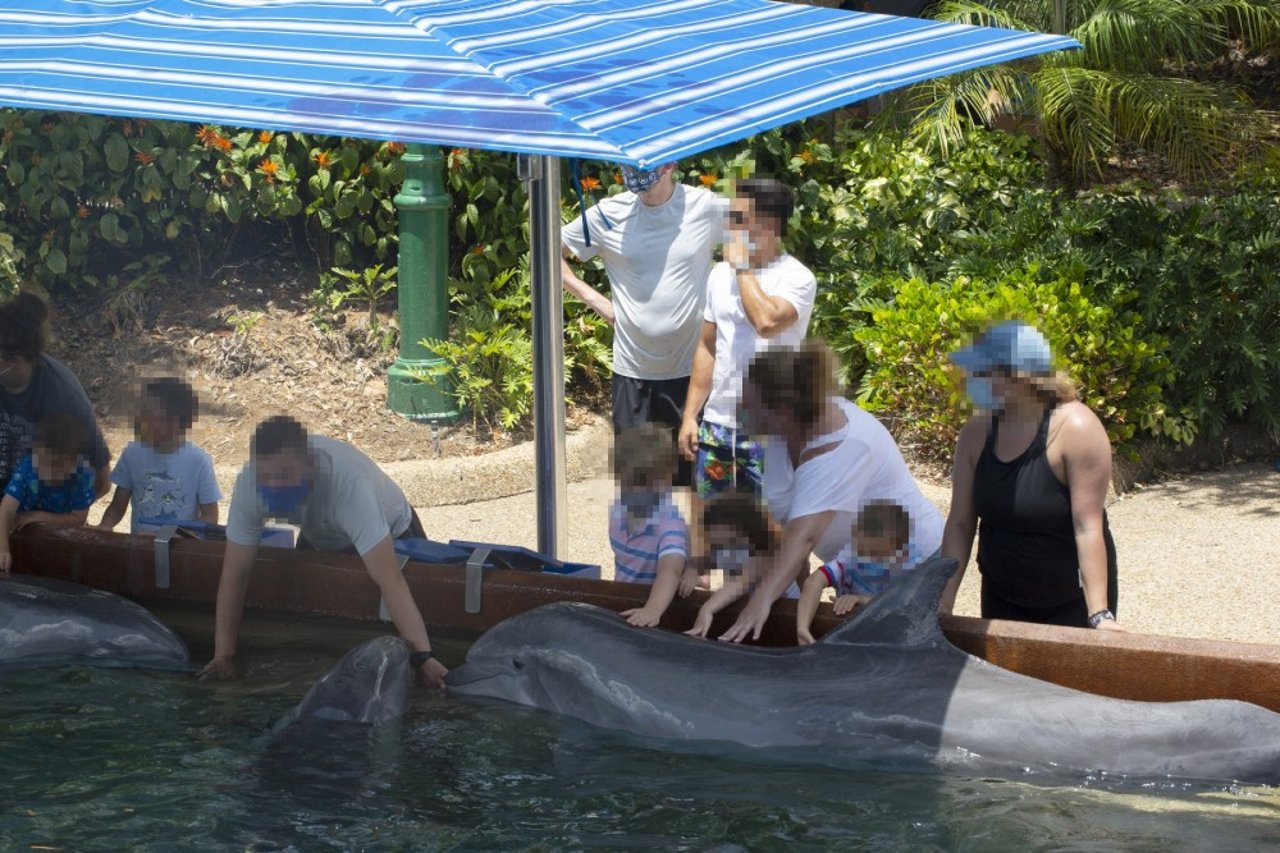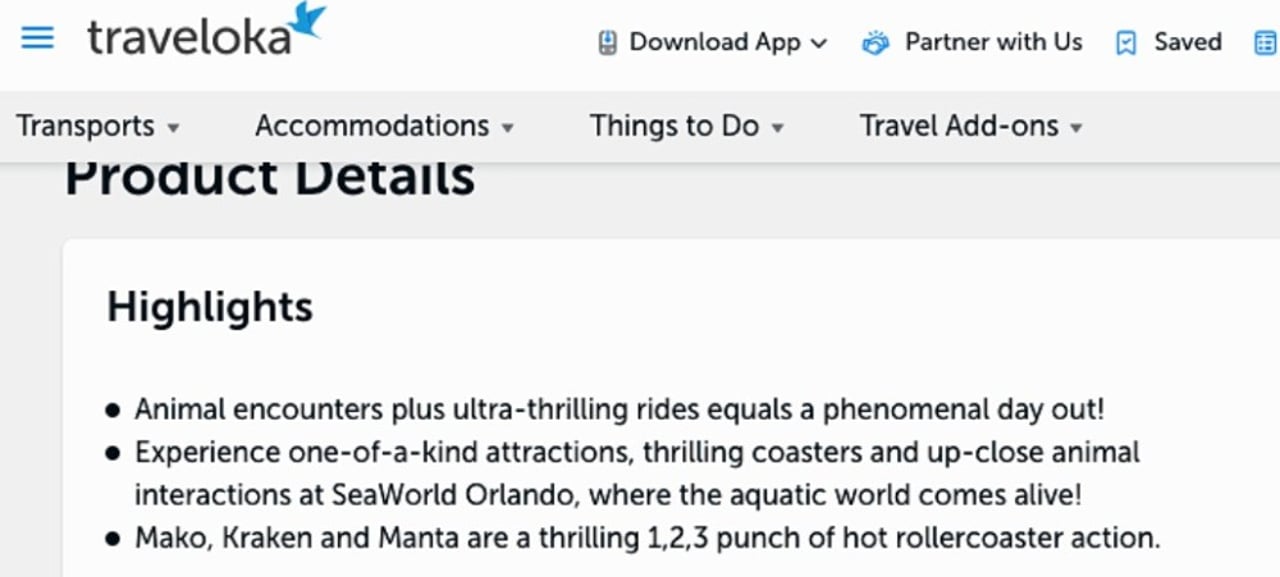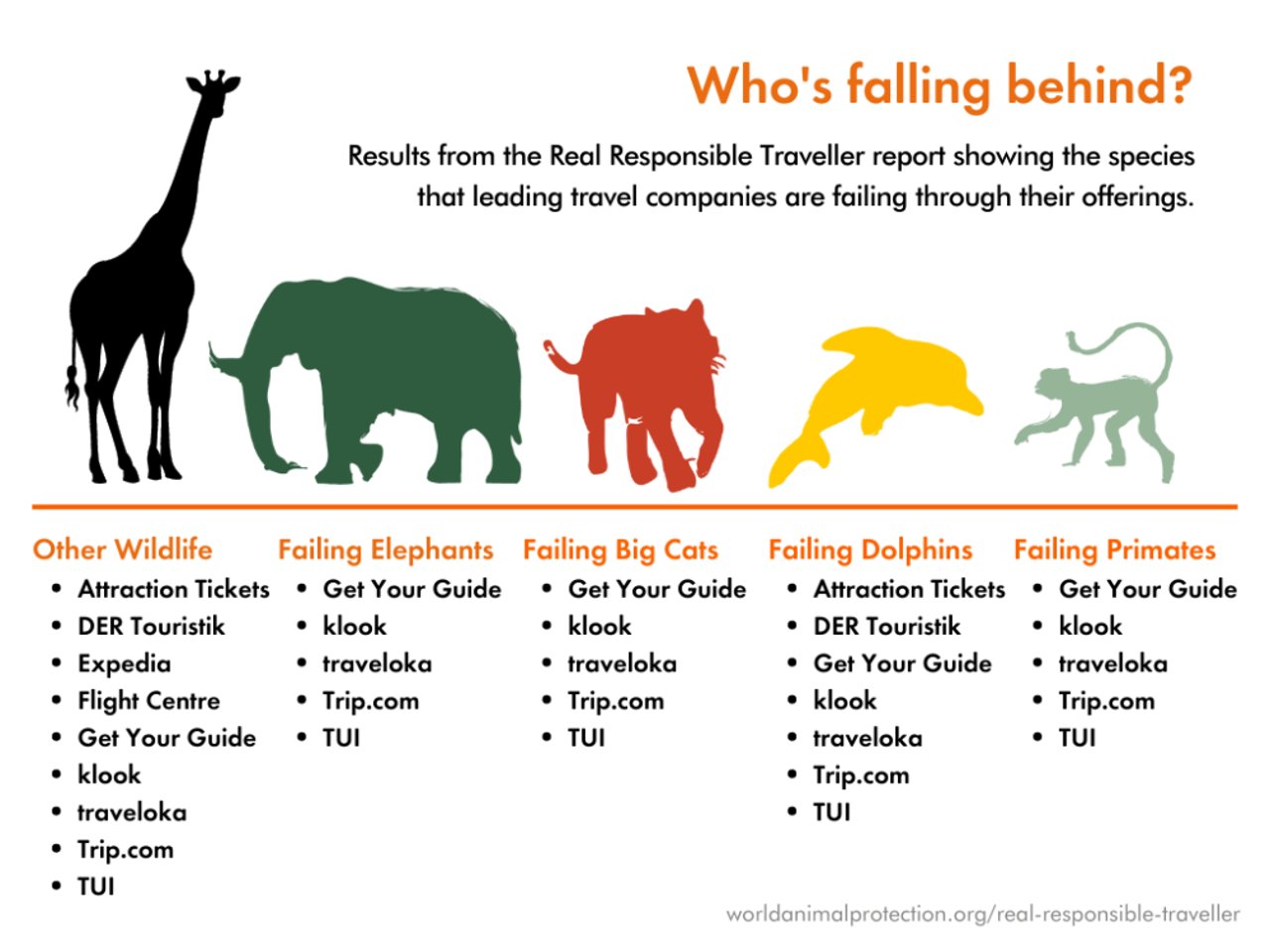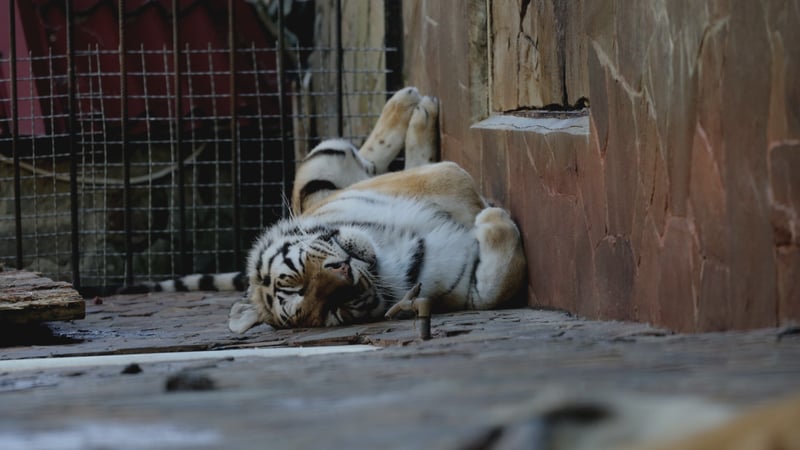
Tourism is big business and travel can be an education, but the public’s expectations have changed a lot since the early days of package holidays. Modern travellers are seeking more considerate ways of holidaying — including buying from tour operators who support responsible animal welfare within the travel industry.
- 68% of tourists want to avoid tour operators who promote the use of wild animals in entertainment.
- 79% want to see animals in the wild rather than in captivity.
- And 84% say that a tour operator has a responsibility to avoid activities that cause suffering.
The public wants to spend their money with ethical providers, but it isn’t always obvious who in the travel industry is paying lip service to animal protection and which companies are making a real difference.
How tourists can find truly responsible travel companies
So what makes a responsible tour operator responsible? Yes, these companies should be involved in ‘sustainable’ practices; looking to improve or offset their environmental impact. They should also be investing in ‘eco tourism’; conserving the environment and considering the wellbeing of local communities.
But that’s not enough. For a company to be truly responsible, it also needs to do good through its travel experiences. And far too many tour operators are still promoting bad, exploitative wildlife entertainment.
The Real Responsible Traveller Report
This is where World Animal Protection’s ‘The Real Responsible Traveller' report aims to help you make the right choice. Researchers collected information from the public websites of each of the companies in this assessment, to determine which companies are selling harmful experiences at captive wildlife venues. They also considered animal welfare in four key areas of importance in the companies' business models.
- Commitment
- Targets and performance
- Changing industry supply
- Changing consumer demand
Here’s what you need to know about leading tour operators from our findings.
5 global tour operators who are still failing wildlife
Unfortunately, we found that five tour operators and holiday companies are still severely failing wild animals. These are tour companies that continue to sell exploitative ‘experiences’ involving wild animals; they sustain, rather than help eliminate, the demand for these harmful practices.
These five companies — GetYourGuide, Klook, Traveloka, Trip.com, and TUI — are falling behind when it comes to acknowledging the tourism industry’s responsibility towards animal protection, and do not recognise their own responsibility. Worse, they have been found to downplay the dangers of interactions between wild animals and tourists, too.
Our report goes into detail about the failings of these tour operators, but we have summarised the findings below.
GetYourGuide
- GetYourGuide joins our other poorly performing tour operators in taking little or no responsibility for preventing animal suffering. They too have made no effort to change their commitments, targets, supply chain or transparency.
- The business has shown no attempt to include animal welfare commitments in their plans at all.
- GetYourGuide continues to work with suppliers who are breaching guidelines. They, too, scored 0% for changing industry supply.
Klook
- We were disappointed to see that Klook had not made any efforts to improve their commitments, targets, supply chain or transparency since our Tracking the Travel Industry report in 2020.
- Our findings conclude that Klook has entirely neglected its responsibility to animal protection. They continue to encourage customers to interact with wild animals through tickets purchased on their website.
- This tour operator also scores 0% for changing industry supply. They continue to work with suppliers who breach animal protection guidelines and/or are not transparent about their processes.
Traveloka
- 2022’s The Real Responsible Traveller report was the first assessment made of Traveloka operations, but they received a shockingly low score of 3%.
- That score reflects a complete lack of commitment to considering animal welfare in their business.
- Traveloka also score 0% for changing industry supply, reflecting their willingness to work with suppliers who are not transparent about how they meet animal protection guidelines.
Trip.com
- Trip.com have also made no effort to change their commitments, targets, supply chain or transparency since our Tracking the Travel Report in 2020.
- They continue to sell tickets to attractions involving interactions with wild animals and have failed to take responsibility for animal protection or welfare. Like Klook, Trip.com also scored less than 10% for changing industry supply and 0% for targets and performance.
- We are especially concerned about Trip.com’s lack of progress as this tour operator is currently expanding its influence across European and North American markets — providing a pivotal moment for the brand to either get behind the protection of animals and use their influence for good or not.
TUI
- TUI has made some effort to change the industry supply of attractions involving wild animals by being transparent about supplier processes. This is a welcome effort.
- Unfortunately, the tour operator continues to sell tickets to exploitative wildlife venues, sustaining the demand for this form of animal cruelty.
- We found that TUI failed all four species categories we examined, as well as their policies towards wildlife more generally.
How can tour operators embrace sustainable travel?
Sustainable travel companies and eco tourism companies have a vital role to play in ending animal suffering, but not all tour operators are ready to step up.
As we’ve seen, growing customer demand for more sustainable and ethical practices hasn’t been enough for some companies to prioritise animal protection. We find this shocking, especially when the ethical and business cases dovetail so well.
The measures required are also surprisingly straightforward. At World Animal Protection, we provide a clear path for tour operators who want to make a difference. Let’s look at the important actions they can take to help change the entire industry.
Algoa Bay as a Whale Heritage Site and immensely important to protecting South Africa's wildlife. It showcases a viable, sustainable alternative to cruel captive dolphin venues.
Stop selling tickets to captive wildlife entertainment
Captive wildlife entertainment involves tourists interacting directly with wild animals or the animals being made to perform for an audience. This activity is harmful to the animals being exploited, even if it looks to the guests like the animals are enjoying the show.
Wildlife entertainment vs wildlife experiences
We are not against travellers seeing and experiencing wild animals to better understand them. In fact, this kind of engagement can be very helpful for animal protection. What we cannot support, however, is tour operators providing ‘animal encounters’ that have no positive impact on the animal, community or conservation — and captive wildlife entertainment falls into this category.
Captive wildlife entertainment cannot be compared to experiences with genuine educational purposes or that seek to promote the protection of animals. The animals involved in wildlife entertainment are either captured in the wild or born into captivity. They are typically removed from their mothers at an early age and subjected to harsh training practices, which have been found to cause physical and psychological harm.
Then, forcing animals into artificial and stressful ‘show’ environments does nothing to promote their welfare or teach travellers about their natural behaviour.
If it doesn’t feel right, it probably isn’t right
Holiday-makers know that this sort of wildlife experience isn’t right. Our research shows that customers are concerned about the harm animals experience in these forms of ‘entertainment’. 84% of respondents in our research believed that tour operators should not be selling tickets to these types of activities.
It’s time for tour operators to catch up and end the promotion of captive wildlife entertainment.
A dolphin experience in Orlando, Florida where Visitors able to touch, feed and take photographs of captive dolphins.
Be more transparent with their wildlife policies
The public wants to know what measures tour operators are taking to protect wildlife and they would be willing to vote with their wallets, to support sustainable travel companies. Being more transparent about wildlife policies helps to reassure customers and encourage change across the sector.
Tour operators need to provide customers with transparent wildlife policies. They should be able and willing to publicly state their animal protection goals and offer regular reports and updates on their progress.
We want companies to be proud of their wildlife policies, and so do customers. Keeping animal protection front and centre and talking openly about how much more there is to do, builds trust between tour operators and their eco-conscious customers.
Successful travel companies will be those who take a strong stance against animal cruelty. Eco tourism operators have a strong brand identity as responsible leaders in travel, strengthening their market position and allowing customers to feel good about their experiences.
Product details for SeaWorld Orlando that is categorised as a playground on Traveloka.com
Take responsibility for consumer demand
We’ve spoken a lot about consumers wanting change from tour operators, but tour operators are not passive recipients of consumer demand. Sustainable travel companies recognise their ability to shape customer expectations and take responsibility for the impact of their decisions — and other tour operators should do the same.
Selling tickets to exploitative captive animal entertainment sends a message to tourists. When customers see tickets to wildlife entertainment on sale, many will assume that these events are acceptable, or even beneficial, for the living quality of animals. However, we know that they are not.
True eco tourism companies will talk honestly and publicly about captive animal entertainment, informing customers about the impact of these activities on the animals involved. They will take active, meaningful steps to educate customers and reduce demand for unethical practices.
Customer expectations are already moving in this direction. Sustainable travel companies don’t just follow this trend — they step up to lead.
How holiday-makers can make real responsible travel the standard
Consumers have the power to change company policies. If exploitative animal entertainment events are boycotted, then these practices will become uneconomic. If travellers refuse to pay to watch animals ‘perform', then there is no incentive for creating these conditions of suffering.
Tourists have a right to ask
As stated above, the best practice for responsible companies is to be fully transparent with customers about animal welfare. But where the details are less clear, tourists should feel empowered to ask about the use of captive animals in entertainment events, and to request whether any animal protection measures have been put in place to date.
Tourists can demand better practices
It’s also helpful for consumers to be vocal about the values they expect from tour operators. Sustainable travel companies sprang up because holiday-makers expressed their concerns for animal protection. The next step is to convince mainstream travel companies to follow suit.
Customers need to be clear that they won’t tolerate animal exploitation from the tour operators they book with. They can, and should, demand that the companies they travel with prioritise animal health and wellbeing.
Together, we can deliver change
Campaigns to improve animal protection are highly effective, but the public need to get involved.
World Animal Protection coordinated a campaign allowing hundreds of thousands of their members to make their voices heard about captive dolphin entertainment. In response, Expedia banned these kinds of attractions in 2021.
For holiday-makers to use their influence effectively, they need to actively seek out sustainable travel companies for their holidays and excursions.
Some of the most wildlife-friendly companies assessed
Luckily, travellers have access to some tour operators who live up to their values. Here are some of the most wildlife-friendly companies in our report.
- Airbnb - Scored 67% in our report
- Booking.com - Scored 48% in our report
- The Travel Corporation - Scored 75% in our report
- Tripadvisor/Viator - Scored 44% in our report
What are these companies doing well?
Unlike the majority of the companies assessed, these tour operators are not failing any of the four species, or wildlife more generally. As you’ll appreciate from the names listed, these are mainstream tour operators who are making serious commitments to tackle animal exploitation within the travel industry. They are taking meaningful steps to reduce customer demand, and to improve industry practices.
We believe that this represents a consistent commitment to animal protection and is a positive sign for the future.
These four businesses also include binding requirements in their supplier contracts, ensuring that they only work with companies that meet animal welfare standards. They are leading the industry in moving towards a sustainable, animal-friendly business model.
There is always room for improvement, but we want to recognise the progress that these companies have made in changing their industry for the better.
What can you do next?
We know that the vast majority of travellers want to explore the world responsibly, simultaneously experiencing and protecting our world.
For more information about industry best practices and how you can make a difference, visit our Responsible Travel page.
